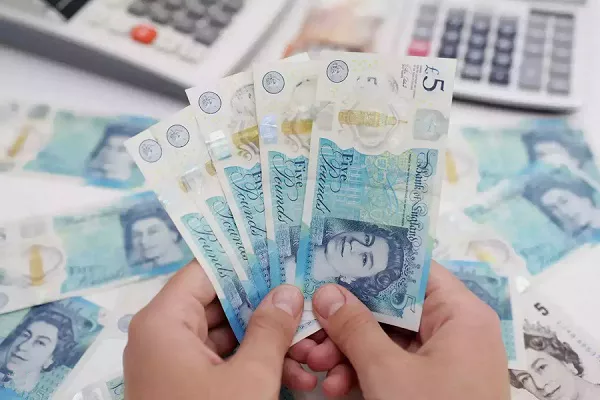The British pound (GBP), also known as the pound sterling, is one of the oldest and most widely traded currencies in the world. Its value is of great importance, not only to the United Kingdom but also to international investors, traders, and travelers. In this article, we delve into the factors that influence the GBP price and explore the implications of its value in various contexts. By examining economic indicators, market forces, and historical trends, we can gain a comprehensive understanding of the GBP price dynamics.
Factors Influencing GBP Price:
-
Macroeconomic Indicators
Macroeconomic indicators, such as GDP growth, inflation rates, employment data, and trade balances, provide insights into the overall health and performance of the UK economy. Positive indicators can strengthen the GBP, while negative indicators may weaken it.
-
Monetary Policy
The Bank of England (BoE), as the UK’s central bank, plays a crucial role in shaping the GBP price through its monetary policy decisions. Interest rate adjustments, quantitative easing measures, and financial stability measures implemented by the BoE can impact the value of the pound.
-
Political and Geopolitical Factors
Political stability, policy decisions, and geopolitical events can have a significant influence on the GBP price. Factors such as Brexit negotiations, political leadership changes, and international trade agreements can create uncertainty, causing fluctuations in the pound’s value.
GBP Price Determination:
-
Foreign Exchange Market Dynamics
The GBP price is primarily determined by market forces in the foreign exchange market, where currencies are bought and sold. The interaction between buyers and sellers, influenced by economic indicators and market sentiment, leads to fluctuations in the GBP price.
-
Supply and Demand for GBP
The value of the GBP is influenced by the relative supply and demand for the currency in the foreign exchange market. If demand for GBP exceeds supply, its value tends to rise, while increased supply can lead to a depreciation of the currency.
-
Interplay with Other Currencies
The GBP price is not only influenced by internal factors but also by its relationship with other major currencies, such as the US dollar, euro, and yen. Exchange rate fluctuations between these currencies can impact the value of the GBP.
Implications of GBP Price:
-
International Trade and Investment
The value of the GBP has significant implications for international trade and investment. A stronger pound makes imports relatively cheaper, while exports become more expensive. Conversely, a weaker pound enhances export competitiveness but increases the cost of imported goods.
-
Travel and Tourism
The GBP price affects the purchasing power of tourists and travelers visiting the UK. A stronger pound makes it relatively more expensive for foreign visitors, while a weaker pound can make the country more affordable.
-
Inflation and Cost of Living
Fluctuations in the GBP price can influence the cost of living within the UK. A weaker pound can lead to higher import prices, potentially driving up inflation and impacting consumers’ purchasing power.
Historical Trends and Volatility:
-
Historical Performance
Examining the historical trends of the GBP price can provide valuable insights into its volatility and long-term performance. The pound has experienced periods of strength and weakness against other currencies, reflecting economic and political developments over time.
-
Volatility and Market Sentiment
The GBP is known for its volatility, influenced by market sentiment and investors’ perceptions of risk. Political events, such as referendums, elections, and policy announcements, can trigger sharp fluctuations in the pound’s value.
-
Impact of Brexit
The process of the United Kingdom’s withdrawal from the European Union, commonly known as Brexit, has had a significant impact on the GBP price. Uncertainty surrounding the negotiations and the future relationship between the UK and EU has contributed to increased volatility in the pound’s value.
Forecasting and Outlook:
-
Analysts’ Predictions
Financial institutions, economists, and analysts provide forecasts and outlooks on the future direction of the GBP price. These predictions take into account various factors such as economic indicators, political developments, and global market trends.
-
Impact of Economic Policie
Government policies, including fiscal measures, trade agreements, and regulatory changes, can influence the GBP price. Market participants closely monitor policy decisions to assess their potential impact on the pound’s value.
-
External Factors
External factors, such as global economic trends, geopolitical events, and shifts in investor sentiment, can exert influence on the GBP price. Factors beyond the control of the UK government can create both opportunities and risks for the pound.
Conclusion:
The GBP price is influenced by a complex interplay of economic indicators, monetary policy, political events, market dynamics, historical trends, and external factors. Understanding these factors and their implications is essential for individuals and businesses involved in international trade, investment, and travel. Monitoring market developments, staying informed about economic indicators, and assessing political events are crucial for anticipating and responding to changes in the GBP price.
Related Topics:
- Understanding GBP: The Currency of the United Kingdom
- Understanding the Current CHF to GBP Exchange Rate
- Understanding the Value of the GBP in CAD


